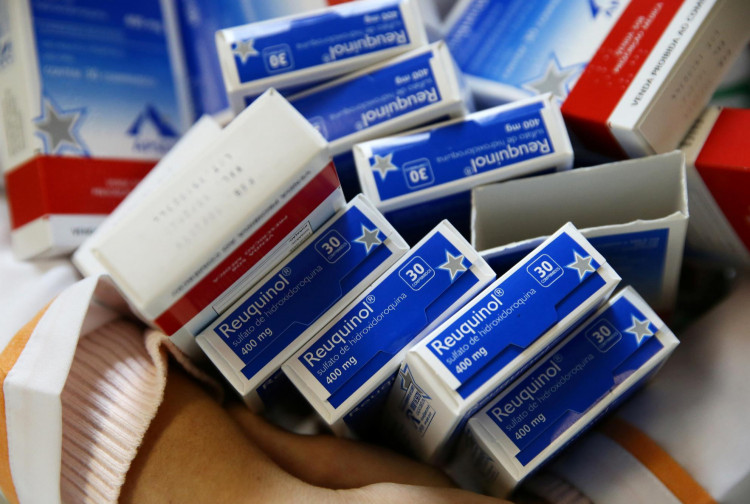The World Health Organization has said that hydroxychloroquine - the malaria drug that United States President Donald Trump claimed he has been prescribed as a protection - will be temporarily removed from its global research into new coronavirus therapies following safety concerns.
Tedros Adhanom Ghebreyesus, WHO chief, disclosed it would suspend the hydroxychloroquine unit of its worldwide solidarity clinical testing in light of a document released last week by the Lancet that found people being administered with the vaccine were at a bigger risk of suffering heart attacks or even death compared to those who weren't.
The organization's steering body will use the suspension to allow the Data Safety Monitoring Board to evaluate and appraise all evidence that are available around the world to appropriately assess the possible benefits and harms of hydroxychloroquine, the WHO director disclosed.
According to Tedros, hydroxychloroquine was among four treatments and vaccine combinations included in the global trial, which has enrolled over 3,500 subjects in 17 nations. Other possible vaccines are still being developed and tested, including the candidate drug remdesivir and a combination therapy for HIV.
Dr. Soumya Swaminathan, the WHO's leading scientist, stated that the organization's regulators and research authorities in individual nations have rung enough warning bells to recommend the suspension of the trial's enrollment. Swaminathan said the WHO will take a week or two to get more information.
The WHO has previously recommended against the use of the anti-malaria drug to treat or contain COVID-19, except as part of licensed clinical trials. Dr. Mike Ryan, chief of the organization's emergencies program, stressed the move to halt testing of hydroxychloroquine had been a result of mounting caution.
A study released in The Lancet last week showed that after analyzing around 100,000 patients in 670 hospitals on six continents, scientists discovered no solid proof to support the assertion that hydroxychloroquine is effective. Euronews disclosed that the research was not a clinical trial, but was based on observational evaluation conducted between December 20, 2019 and April 14, this year.
Hydroxychloroquine is approved for the treatment of rheumatoid arthritis, lupus and for the prevention and treatment of malaria, however, no comprehensive trials have determined the drug to be safe or effective in treating COVID-19. Tedros said that patients being given the medication for its proven uses beyond COVID-19 should not worry.
Meanwhile, nations where COVID-19 infections are on the decline may still experience a second peak if they relax lockdown and quarantine restrictions too soon, the WHO announced on Monday.






